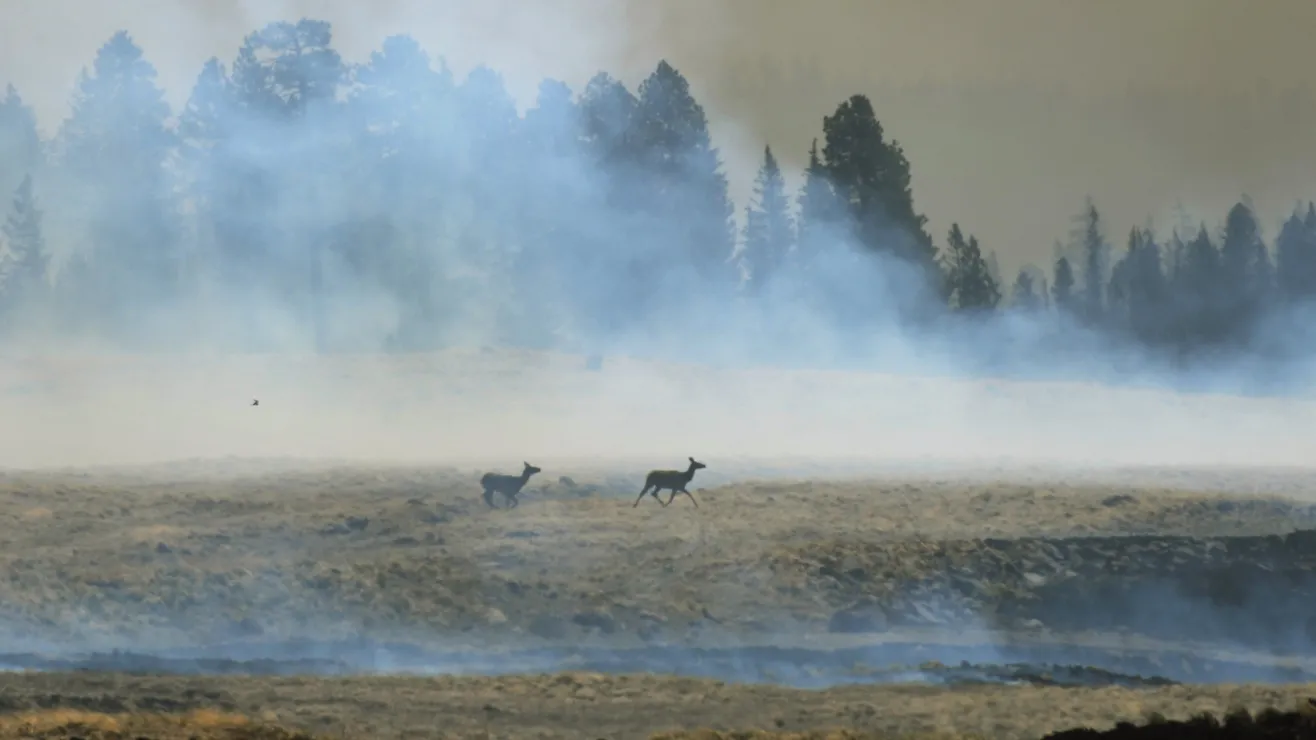Arizona (Transatlantic Today) —An Arizona woman lost her life eight days after a moose, in what is believed to be the state’s first fatal moose attack, apparently trampled her outside her home.
The incident took place in the community of Pine Lake in the Hualapai Mountains on October 26 around 6 p.m., in a rare occurrence for the entire area.
Upon arriving at her property, the woman’s husband found her in her backyard with injuries that appeared to have been trampled by a moose, according to the Arizona Game and Fish Department.
Moose attack in Arizona
According to CNN, the discovery was accompanied by the “vision of corn spilling from a nearby bucket.” The husband immediately called 911 and his wife was transported first to Kingman Regional Medical Center and then to Sunrise Hospital in Las Vegas. Due to the severity of her injuries, she was placed in a medically induced coma.
Tragically, the woman died last Friday and the Clark County Coroner’s Office ruled her death an accident. While the names of the woman and her husband have not been released, the incident has raised concerns about encounters with wildlife, specifically moose.
The Arizona Game and Fish Department learned of the attack on October 27 when a local resident reported it, according to CNN. Responding, an officer went door-to-door and posted warning signs on homes in the area, warning residents not to approach or feed the moose.
The officer, after speaking with the victim’s husband and other residents, observed moose tracks in the victim’s yard.
On the day of the woman’s death, game officials once again visited Pine Lake, distributing warning signs and placing two roadside signs to reinforce the message to avoid elk.
The department emphasizes that feeding wildlife is a major source of human-animal conflict, leading to habituation.
How common are moose attacks?
In the past five years, Arizona has reported five moose attacks, indicating a possible increase in these types of incidents. Feeding wildlife, a common contributor to such conflicts, habituates animals to human presence, posing risks to both people and the animals themselves.
One of the incidents cited occurred in 2015, when two children were injured by a moose surrounding their family’s picnic table in the Hualapai Mountains. Another incident in 2021 involved a woman who suffered serious head injuries from a human-habituated moose in Pine Lake.
A study conducted by Utah State University in 2019 highlighted the paucity of information on injuries caused by free-ranging herbivores such as elk. The study documented three non-fatal injuries to humans caused by moose in the US in 2018, all within Yellowstone National Park.
The Arizona Game and Fish Department urges the public to refrain from feeding wildlife, emphasizing that habituated animals pose risks not only to those providing food, but also to neighbors and the wildlife themselves.
This article is originally published on eldiariony.com


























